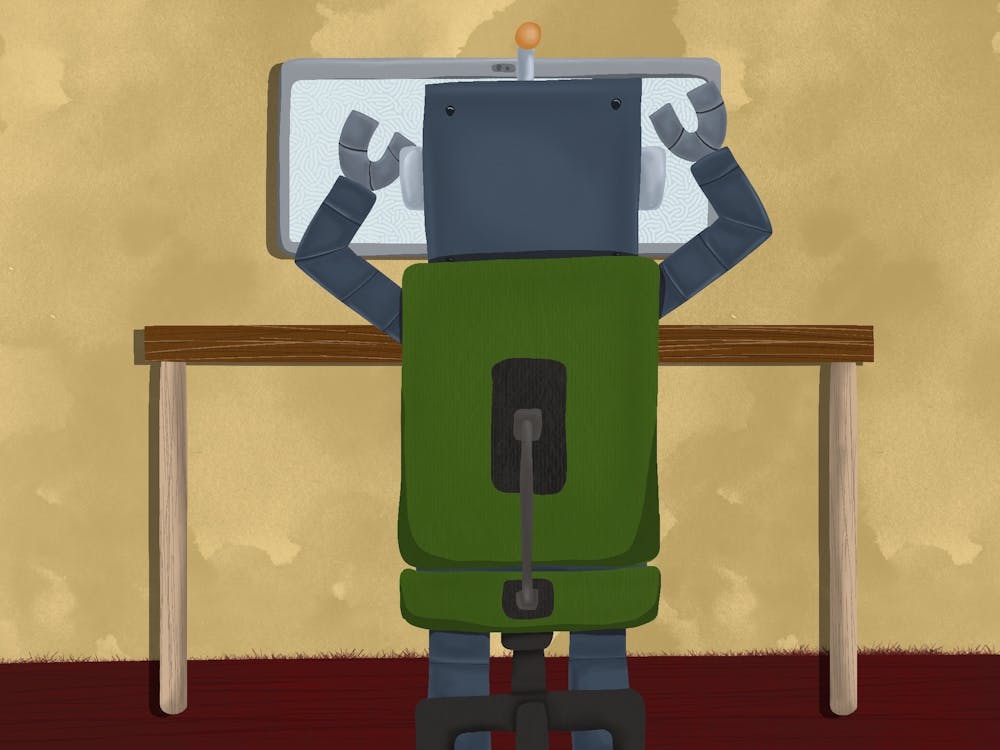Artificial Intelligence continues to advance along with debates on campus about the effects of AI's growing influence on the democratic process.
AI brings up concerns about misinformation, deep fakes, algorithmic biases, political polarization and heightened distrust of voting processes — but some professors and students also believe AI could be a tool for healthy democracy depending on how meaningfully and purposefully it's used and integrated into society.
Andrew Maynard, a professor for the School for the Future of Innovation in Society, said that the impact of AI depends on how people utilize it.
"AI is going to disrupt a lot of things, yes," Maynard said. "But the idea of whether that's in a positive or negative way is really up to us communicating and actually thinking through it rationally and critically."
Maynard said he is concerned about AI's ability to erode citizens' trust in social and political processes. Still, he also believes that AI can help inform people on important issues and start meaningful conversations.
AI can process and create significantly more information than any human at a much faster rate and, therefore, can give citizens access to different perspectives on social and political issues. It can also raise concerns about widespread propaganda, political biases and disinformation.
Kyle Jensen, Director of Writing Programs and professor for the Department of English at ASU, said he believes that because of AI's ability to produce a great number of texts and disseminate them on such a large scale, AI literacy is needed.
"We need to develop generative AI literacy, to develop a very core and fundamental commitment to understanding how it works, how to differentiate it from other kinds of communications and how to work with it to ensure that the people who typically are underrepresented and who do not have access to the democratic process, we safeguard and protect," Jensen said.
The need to develop a new type of technological literacy to benefit from AI was shared by Brock Blasdell, a graduate student studying classical liberal education and leadership. Blasdell said he believes AI could be used beneficially within the political realm.
"You shouldn't go look to AI for opinions on your political views — you should be forming those yourselves," Blasdell said. "But as a tool for data collection, it's very, very useful."
The question of how to ensure the information students are consuming is as reliable and unbiased as possible is prominent in the debate about AI on campus. Maynard said he believes that AI gives college students an important role in the discussion because the younger generations are most equipped to engage with this technology.
"My experience with new technologies has always been that the younger generations are the first to develop the level of sophistication that is necessary to navigate them," Maynard said. "I actually have a lot of hope that students can both understand the challenges, limitations and dangers of these technologies and develop pretty sophisticated ways of navigating those."
Edited by Alysa Horton, Walker Smith and Caera Learmonth.
Reach the reporter at sherman7@asu.edu and follow @SophiaaHerman on X.
Like The State Press on Facebook and follow @statepress on X.




